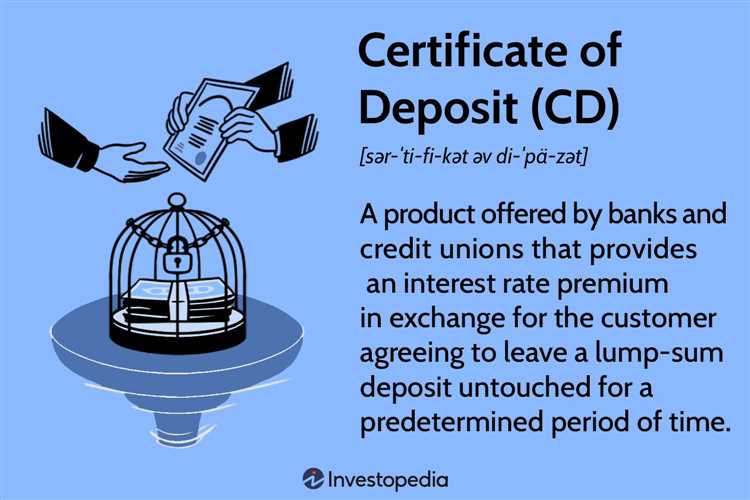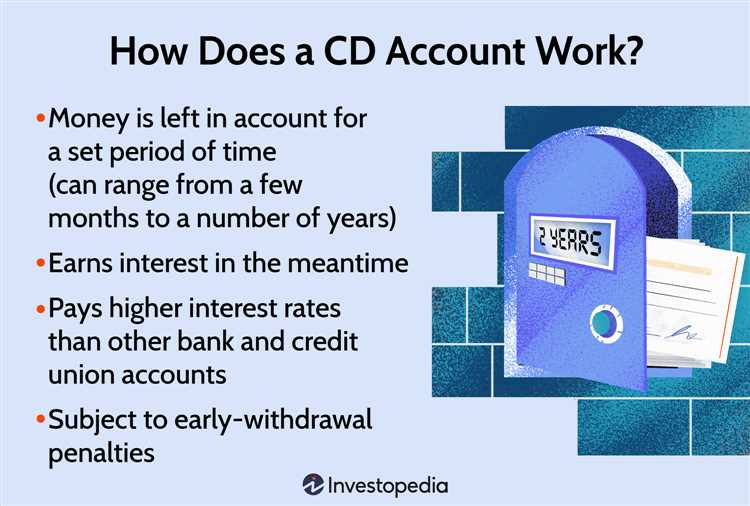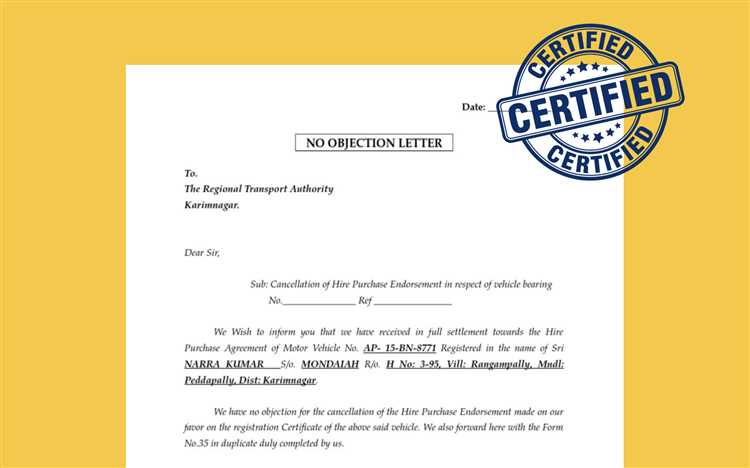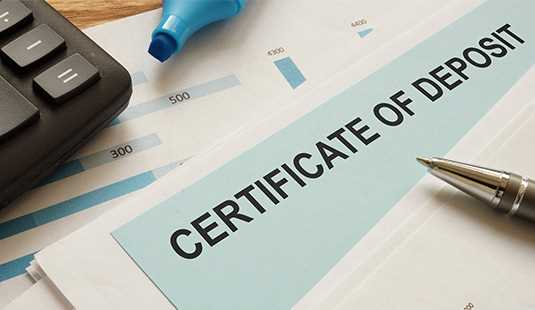Bank certificates play a crucial role in the modern financial landscape. Whether you are an individual or a business owner, understanding their importance is essential for making informed decisions about your financial future. In this comprehensive guide, we will delve into the world of bank certificates, exploring what they are, why they matter, and how you can leverage them to maximize your financial potential.
What is a Bank Certificate?

A bank certificate, also known as a certificate of deposit (CD), is a financial instrument offered by banks that allows you to deposit a specific amount of money for a fixed period of time, usually ranging from a few months to several years. In return for your deposit, the bank offers you a guaranteed interest rate, generally higher than what you would receive from a regular savings account.
One of the key reasons why bank certificates are important is their security. When you deposit your money into a bank certificate, you can rest assured that it is protected by the full faith and credit of the issuing bank. This means that even if the bank were to face financial difficulties, your principal amount, as well as the accrued interest, would be safeguarded up to a certain limit, typically insured by the government.
Bank certificates are also favored by many investors due to their stability. Unlike other investment options, such as stocks or mutual funds, which are subject to market fluctuations, bank certificates provide a guaranteed return on your investment. This makes them particularly attractive for individuals and businesses seeking a secure and predictable source of income.
Moreover, bank certificates offer flexibility in terms of their maturity dates. Depending on your financial goals and liquidity needs, you can choose a short-term certificate that matures in a few months or opt for a long-term certificate that matures in several years. This flexibility allows you to align your investment strategy with your specific financial objectives.
The Different Types of Bank Certificates

Bank certificates are important financial documents that serve various purposes. They are issued by banks to provide proof of certain transactions or account details. Understanding the different types of bank certificates can help individuals and businesses make informed financial decisions. Here are some common types of bank certificates:
| Type of Certificate | Description |
| Certificate of Deposit (CD) | A Certificate of Deposit is a time deposit that earns a fixed interest rate for a specific period of time. It is a low-risk investment option and can be used as collateral for loans. |
| Bank Statement | A Bank Statement is a document that provides a summary of transactions in a bank account over a specific period. It helps account holders keep track of their financial activities. |
| Bank Confirmation | A Bank Confirmation is a document that confirms the accuracy of account balances or transactions. It is often requested by auditors during financial statement audits. |
| Bank Guarantee | A Bank Guarantee is a document issued by a bank that guarantees the payment of a certain amount to a third party if the beneficiary fails to fulfill its obligations. |
| Letter of Credit | A Letter of Credit is a document issued by a bank that guarantees payment to a seller on behalf of the buyer. It is commonly used in international trade transactions. |
| Bank Certificate of Balance | A Bank Certificate of Balance is a document that certifies the account balance of an individual or business at a certain point in time. It is often required for visa applications or loan approvals. |
These are just a few examples of bank certificates, and there may be other types specific to certain banks or financial institutions. It is important to understand the purpose and implications of each type of certificate before using it for any financial or legal transactions.
Benefits of Bank Certificates

Bank certificates offer several benefits that make them an attractive option for individuals looking to diversify their investment portfolio and secure their financial future. Here are some key advantages of investing in bank certificates:
Safety and Security
Bank certificates are considered one of the safest investment options available. When you invest in a bank certificate, your principal amount is protected, and you do not have to worry about losing your money. Banks have strict regulations in place to ensure the safety and security of their customers’ funds.
Fixed Interest Rates
Bank certificates offer fixed interest rates, ensuring a predictable return on your investment. This is particularly beneficial for individuals looking for stable and consistent income from their investments. You can choose the duration of the certificate and lock in a specific interest rate for that period.
Liquidity
Although bank certificates have a fixed term, they are still relatively liquid compared to other investment options. In case of an emergency or a need for cash, you can typically withdraw your funds before the maturity date. However, early withdrawal may result in penalties or a reduction in interest earned.
Diversification
Bank certificates allow investors to diversify their investment portfolio. By investing in different certificates with varying terms and interest rates, you can spread out your risk and potentially earn higher returns. This diversification helps create a balanced investment strategy.
Tax Benefits
Depending on your jurisdiction, bank certificates may offer tax benefits. Some countries provide tax exemptions on interest earned from bank certificates, making them a tax-efficient investment option. It’s important to consult with a financial advisor or tax professional to understand the specific tax implications in your country.
Accessibility
Bank certificates are accessible to a wide range of investors. Banks often have low minimum investment requirements, allowing individuals with different financial capacities to participate. This accessibility makes bank certificates a viable investment option for everyone.
Risks Associated with Bank Certificates
1. Interest Rate Risk: Bank certificates are usually issued with a fixed interest rate, which means that if interest rates rise, the value of the certificate may decrease. This can result in a loss if the investor wants to sell the certificate before its maturity date.
2. Inflation Risk: Inflation erodes the purchasing power of money over time. If the rate of inflation is higher than the interest rate of the bank certificate, the investor may lose money in real terms, even if the nominal value of the certificate remains the same.
3. Credit Risk: Bank certificates are not risk-free. There is always a chance that the bank may default on its obligations and fail to repay the invested amount. It is important to assess the creditworthiness of the bank before investing in its certificates.
4. Liquidity Risk: Bank certificates may be less liquid compared to other investments. If an investor needs to access their funds before the maturity date, they may face penalties or difficulties in selling the certificate, which can result in a loss of value.
5. Prepayment Risk: Some bank certificates may have a call feature, which allows the bank to repay the principal before the maturity date. If this happens, the investor may lose the opportunity to earn interest for the remaining period and may have to reinvest at a lower rate.
6. Market Risk: The value of bank certificates can be influenced by market conditions, such as changes in interest rates, economic factors, or market sentiment. These fluctuations can impact the value of the investment and result in potential losses.
7. Regulatory Risk: Changes in regulations can affect the terms and conditions of bank certificates. For example, new rules may impose limits on the interest rates banks can offer or introduce additional requirements that may impact the profitability of the certificates.
8. Opportunity Cost: Investing in bank certificates may tie up funds for a specific period, preventing the investor from taking advantage of other potentially more profitable opportunities that may arise during that time.
It is essential for investors to carefully consider these risks and assess their own financial goals and risk tolerance before investing in bank certificates.
Important Takeaways:
– Inflation can erode the purchasing power of a currency over time.
– Fixed-rate bank certificates may not keep pace with rising prices, reducing purchasing power.
– Diversification can help protect against inflation. Consider including assets that perform well during inflationary periods.
– Inflation-protected bank certificates adjust their interest rates to mitigate the negative impact of inflation.
How to Evaluate Bank Certificates
When it comes to evaluating bank certificates, there are several important factors to consider. These factors can help you determine the reliability and credibility of a bank certificate. Here are some key points to keep in mind:
- Bank Reputation: Research the reputation of the bank that issued the certificate. Look for well-established institutions with a solid track record.
- Regulatory Compliance: Ensure that the bank is regulated by a reputable authority, such as the Federal Reserve or the Office of the Comptroller of the Currency. This ensures that the bank operates within the guidelines and regulations set by the governing body.
- Insurance Coverage: Verify if the bank certificate is backed by deposit insurance. This provides an additional layer of protection in case of bank failure.
- Interest Rates: Compare the interest rates offered by different banks. Higher interest rates may indicate a riskier investment, while lower rates may signal a more stable and secure investment.
- Terms and Conditions: Read the fine print of the bank certificate to understand the terms and conditions. Pay attention to factors like minimum deposit requirements, withdrawal restrictions, and penalties for early withdrawal.
- Financial Stability: Review the financial statements of the bank to assess its stability and solvency. Look for consistent profitability, strong capital adequacy ratios, and low non-performing loan ratios.
- Customer Reviews: Seek out customer reviews and feedback about the bank certificate. This can provide insights into the quality of service and the overall customer experience.
- Professional Advice: Consider seeking professional advice from financial advisors or experts who can evaluate the bank certificate and provide guidance based on your specific financial goals and risk tolerance.
By carefully evaluating these factors, you can make informed decisions when it comes to investing in bank certificates. Remember to conduct thorough research and consider your individual financial circumstances before making any investment choices.
In conclusion
Bank certificates are a vital financial tool that can help you grow your wealth while minimizing risk. Their security, stability, and flexibility make them an attractive option for individuals and businesses alike. By understanding the importance of bank certificates, you can make informed decisions about your savings and investments, ultimately paving the way towards a more prosperous financial future.
What is a bank certificate?
Bank certificates are financial documents that certify the ownership of a certain amount of money or assets held in a bank account.
Why are bank certificates important?
Bank certificates are important because they provide proof of ownership and can be used as evidence in legal proceedings. They also help to establish the creditworthiness of an individual or business.
Can you explain the different types of bank certificates?
There are several types of bank certificates, including certificate of deposit (CD), bank drafts, bank guarantees, and bank statements. Each type serves a different purpose and provides different benefits.
How can I obtain a bank certificate?
To obtain a bank certificate, you will need to contact your bank and provide them with the necessary information. They will then prepare the certificate for you, which you can pick up in person or have it mailed to you.
What should I do if I lose my bank certificate?
If you lose your bank certificate, you should contact your bank immediately and inform them of the situation. They will be able to provide you with a replacement certificate after verifying your identity and account information.


Leave a Reply